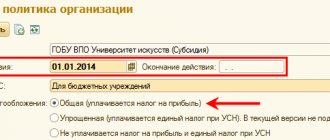Sample contract
A sample civil contract with a foreign citizen can be downloaded from the link below. It contains all the necessary conditions that must be reflected in this type of transaction. It is enough to change the information (bring the contract in accordance with the necessary conditions, change the data of the customer and contractor), and you can use the document in practice.
Thus, when concluding an agreement with a foreigner, it is necessary to notify the authorized state body of the Russian Federation. In addition, compliance with the requirements of the Civil Code of the Russian Federation is required in relation to a specific type of contract.
Special conditions in a contract with a foreigner
Officially, the conclusion of a GPC agreement with a foreign citizen is regulated, in addition to the Civil Code, by migration legislation: Law No. 115-FZ dated July 25, 2002 (as amended on April 24, 2020) and Order of the Ministry of Internal Affairs of the Russian Federation No. 363 dated June 4, 2021.
When concluding a GPA with a visitor from abroad, it is important to check that he has a valid work permit or patent. Exceptions are listed in paragraph 4 of Art. 13 of Law No. 115-FZ. Foreigners with a temporary residence permit and temporary residence permit have the right to carry out labor activities without obtaining a permit. The GPC agreement with a citizen of Kyrgyzstan in 2021 also does not include a clause on a work permit, as well as with foreigners from Armenia, Belarus and Kazakhstan: citizens of EAEU member countries do not require a work permit in Russia.
A foreigner is required to confirm his legal stay in Russia. To do this, he presents a migration card or visa - if he is a temporary resident, a temporary residence permit - if he is a temporary resident, a residence permit - for permanent residents. The type of documents that a foreigner presents depends on whether his country has a visa or visa-free regime. Thus, a GPC agreement with a citizen of Uzbekistan (visa-free regime) is possible upon presentation of a migration card (TRP or residence permit) and a patent (Article 2 of Law No. 115-FZ). And, for example, a visitor from Georgia (visa regime) should check the validity of the visa (TRP or residence permit) and work permit in the Russian Federation (paragraph 16, paragraph 1, article 2 of Law No. 115-FZ).
An agreement is drawn up with a foreign citizen for the provision of services or performance of work, similar to an agreement with a Russian, but there are a number of features. It additionally specifies:
- national passport details;
- the name and details of the document on the basis of which he is legally located on the territory of the Russian Federation;
- patent or work permit number;
- the term of the agreement does not exceed the validity period of the patent and the legal period of stay in Russia.
If an agreement is concluded with a visitor from a country that is part of the EAEU, for example, a GPC agreement with a citizen of Armenia or Belarus, the patent number does not need to be indicated. But it is still important to check the legality of being on the territory of the Russian Federation, because if a potential employee has a temporary residence permit, then he has the right to conduct activities only in the territory where it was issued.
After concluding a GPA with a foreigner, it is necessary to notify the migration authorities (territorial division of the Main Directorate for Migration Issues of the Ministry of Internal Affairs of the Russian Federation) within three days (clause 8 of Article 13 of Law No. 115-FZ). If a migrant has a residence permit in Russia, there is no need to notify.
Answer of the Chairman of the State Revenue Committee of the Ministry of Finance of the Republic of Kazakhstan dated July 26, 2019 to the question dated July 9, 2019 No. 557926
Hello Tanieva Albina! The State Revenue Committee of the Ministry of Finance of the Republic of Kazakhstan (hereinafter referred to as the State Revenue Committee of the Ministry of Finance of the Republic of Kazakhstan), having considered your question, received on the blog of the Chairman of the State Revenue Committee of the Ministry of Finance of the Republic of Kazakhstan reports the following.
Regarding the first question. There are no restrictions in the Civil Code of the Republic of Kazakhstan on concluding civil contracts with non-residents; accordingly, concluding such contracts is legal.
According to subparagraphs 25) and 29) of paragraph 1 of Article 644 of the Code of the Republic of Kazakhstan “On taxes and other obligatory payments to the budget” (Tax Code) dated December 25, 2017. No. 121-VI, income from the provision of independent personal (professional) services in the Republic of Kazakhstan, as well as income of a non-resident individual in the form of material benefits received from a person who is not an employer, are recognized as non-resident income from sources in the Republic of Kazakhstan.
In accordance with paragraphs 1 and 4 of Article 655 of the Tax Code, income of a non-resident individual from sources in the Republic of Kazakhstan, with the exception of income specified in paragraph 1 of Article 656 of the Tax Code, is subject to individual income tax at the source of payment at the rates specified in Article 646 of the Tax Code Code, without tax deductions, unless otherwise provided by this article.
Calculation and withholding of individual income tax on income subject to taxation at the source of payment is carried out by the tax agent no later than the day the income is paid to a non-resident individual, except for the case specified in paragraph 7 of this article.
Personal income tax at the source of payment is withheld by the tax agent, regardless of the form and place of payment of income to a non-resident individual.
According to subparagraph 1) of paragraph 1 of Article 646 of the Tax Code, a non-resident’s income from sources in the Republic of Kazakhstan is subject to taxation at the source of payment at a rate of 20 percent.
Thus, a non-resident’s income from the provision of independent personal (professional) services in the Republic of Kazakhstan, as well as income in the form of material benefits, are recognized as income from sources in the Republic of Kazakhstan and are subject to taxation at the rate of 20 percent at the source of payment, without tax deductions.
Regarding the second question. In accordance with the provisions of paragraph 1 of Article 242 of the Code of the Republic of Kazakhstan dated December 25, 2021 “On taxes and other obligatory payments to the budget” (Tax Code), the taxpayer’s expenses in connection with the implementation of activities aimed at generating income are subject to deduction when determining taxable income from taking into account the provisions established by this article and articles 243 - 263 of the Tax Code, with the exception of expenses that are not deductible in accordance with the Tax Code.
Paragraph 3 of Article 242 of the Tax Code establishes that deductions are made by the taxpayer for expenses actually incurred in the presence of documents confirming such expenses related to his activities aimed at generating income.
Based on the above, for the purpose of calculating the CIT, the taxpayer’s expenses related to the implementation of activities aimed at generating income and confirmed by the relevant primary documents are subject to deduction.
Regarding the third question. In accordance with paragraph 5 of Article 2 of the Tax Code, if an international treaty ratified by the Republic of Kazakhstan establishes rules other than those contained in the Tax Code, the rules of the said treaty apply. In accordance with paragraphs 1 and 2 of Article 15 of the Model Conventions, income derived by a resident of a Contracting State from the provision of professional services or other activities of an independent character shall be taxable only in that State unless he has a fixed base regularly available to him in the other Contracting State. for the purposes of carrying out such activities. If it has such a basis, the income may be taxed in the other State, but only to the extent attributable to that fixed base. The term "professional services" specifically includes independent scientific, literary, artistic, educational or teaching activities, as well as the independent activities of physicians, lawyers, engineers, architects, dentists and accountants.
Thus, the income of a non-resident from the provision of professional services or other activities of an independent nature is subject to taxation in the state of which he is a resident, but provided that such non-resident does not form a permanent base in the Republic of Kazakhstan.
Also, according to paragraph 4 of Article 666 of the Tax Code, an international treaty is applied subject to the non-resident presenting to the tax agent a document confirming the residence of the non-resident. In this case, a document confirming residence is presented by the non-resident to the tax agent no later than one of the following dates, which occurs first:
1) March 31 of the year following the tax period determined in accordance with Article 314 of this Code, in which the payment of income to a non-resident occurred or the unpaid income of a non-resident was deducted; 2) no later than five working days before the completion of a tax audit on the issue of fulfillment of the tax obligation for income tax withheld at the source of payment for the tax period during which the income was paid to a non-resident. The completion date of the tax audit is determined in accordance with the regulations.
Regarding the fourth question. According to Article 657 of the Tax Code, the declaration for individual income tax and social tax (form 200.00) is submitted by the tax agent to the tax authority at the place of payment of the tax quarterly, no later than the 15th day of the second month following the quarter that includes the reporting tax periods.
At the same time, according to the Rules for preparing tax reporting Form 200.00, Column M of Appendix Form 200.02 indicates accrued income to foreigners and stateless persons, including income received by the employee from the employer in cash or in kind, including income received in the form of material benefits, as well as those concluded with the employer in accordance with the legislation of the Republic of Kazakhstan under civil contracts, including income reflected in Articles 341 and 569 of the Tax Code, with the exception of income specified in subparagraph 24) of paragraph 1 of Article 341 of the Tax Code.
Regarding the fifth question . According to subparagraph 2) paragraph 1 of Article 369 of the Code of the Republic of Kazakhstan “On taxes and other obligatory payments” dated December 25, 2021 No. 120-VI ZRK (hereinafter referred to as the Tax Code), taxable turnover is the turnover made by a VAT payer when purchasing works, services from a non-resident in accordance with Article 373 of the Tax Code.
In accordance with paragraph 1 of Article 373 of the Tax Code, unless otherwise provided by paragraph 2 of this article, work performed, services provided by a non-resident on a reimbursable basis, the place of sale of which is recognized as the Republic of Kazakhstan, when acquired by a VAT payer, are the turnover of such a VAT payer on the acquisition of work, services from a non-resident who is subject to VAT in accordance with the Tax Code. According to subparagraph 3) of paragraph 2 of Article 378 of the Tax Code, for the purposes of this section, the place of supply of work and services is recognized as the Republic of Kazakhstan if the services relate to services in the field of culture, entertainment, science, art, education, physical culture or sports and are actually provided on the territory of the Republic Kazakhstan.
For the purposes of this subclause, entertainment services include entertainment and leisure services that are provided in entertainment establishments, including gambling establishments, nightclubs, cafe bars, restaurants, Internet cafes, computer rooms, billiard rooms, bowling clubs and cinemas.
Thus, the services provided will constitute the turnover of the VAT payer for the acquisition of works, services from a non-resident and will be subject to value added tax in accordance with the Tax Code.
Regarding the sixth question. In the case under consideration, the subject and terms of the agreement that give rise to a tax liability are not clear, which is essential for determining the taxation procedure. At the same time, the emergence of one or another legal fact depends on the conditions of civil transactions and financial relationships between the parties to the transactions. Thus, in order to provide a complete and comprehensive response, it is necessary for the taxpayer to provide complete information and documents related to the specific situation.
Chairman of the State Revenue of the Ministry of Finance of the Republic of Kazakhstan Sultangaziev M.E.
Migrant data that must be included in agreements
Agreements concluded with migrants contain data from the following documents::
- passport;
- patent;
- a document confirming the level of education and qualifications, if the contract involves skilled labor;
- migration card;
- temporary residence permit;
- SniLS;
- voluntary health insurance policy.
Before drawing up an agreement, the employer is obliged to check the period of validity of the permit, the subject of the Russian Federation and the professions indicated in it.
Engaging a foreigner to work in a specialty and in a territory that differs from the data in the patent entails administrative liability.






